
 Flash News
Flash News
Kosovo opens embassy in Malaysia
At first he ridiculed them as 'flying carpets' and then he adopted them/ 7 themes and promises that Edi Rama copied from Sali Berisha in this campaign
Edi Rama's return to the (losing) 2011 campaign
The US withdraws from peace negotiations between Ukraine and Russia.
Vice President Vance's statement distributed by the American Embassy: Where did he say it, in what context, and how does it relate to Albania?
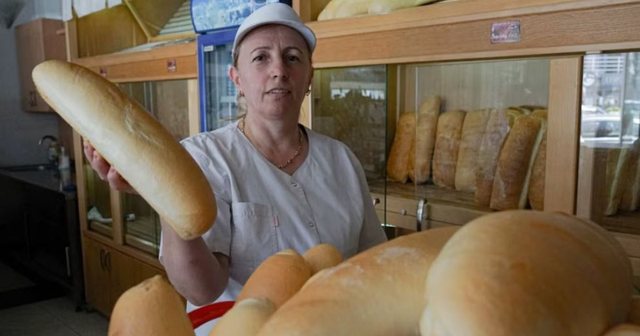
Prices in the bread market and gastronomy have increased in Kosovo in recent days. Consumer protection organizations, as well as market and economic experts, see the rise in electricity prices as a pretext for raising prices of basic consumer products. Is the price increase justified, are there mechanisms for their supervision, as well as for consumer protection?
The next time you shop at your neighborhood bakery or sit down for a drink at the nearest cafe, be prepared to pay up to 100 percent more than before.
The price of 50 cents for a loaf of bread has already changed in many places in Pristina: in some bakeries bread is bought for 60 cents, and in others for 80 cents. In some cafes and restaurants in the capital of Kosovo, the price of a coffee has risen from 1 euro to 1.5 or 2 euros.
Selatin Kaçaniku, from the non-governmental organization Konsumatori, in Pristina, tells Radio Free Europe that the price hike is being justified by some businesses with the increase in the cost of electricity.
On May 1, the decision of the Energy Regulatory Office (ERO) to increase electricity tariffs by 16.1 percent came into effect for households and small businesses with up to 50 employees.
"Coffee has reached 2 euros. But, for the price of one coffee [today], they have made four loaves of bread. Today they no longer make four loaves of bread, but three loaves of bread. It means: ERO has eaten one loaf of bread for us," says Kaçanik.
He adds that signals for price increases for other basic consumer products already exist, while "the logic of [price increases] is the logic of an avalanche."
On June 1, the decision to increase energy prices by up to 30 percent for large businesses with over 50 employees is expected to come into effect.
Is the price of energy influencing the price increase?
Economists and market experts have different views on whether the increase in electricity tariffs is the real reason for the increase in the prices of products and services.
Ismet Mulaj, former Minister of Trade and Industry in Kosovo, estimates that since mid-April, when ERO decided to increase tariffs, businesses have been afraid of increasing their operating costs.
"Therefore, some businesses, even before the prices [of electricity] have increased, have started increasing the prices [of their products]," says Mulaj, according to whom about 95 percent of bakeries operate on electricity.
The increase in energy prices, according to him, increases the cost of bread production for bakers, who have already started to raise prices. Similarly, says Mulaj, other services whose work depends on electricity are expected to act similarly. Blendi Hasaj, executive director at the GAP Institute for Advanced Research, in Pristina, sees the situation differently.
According to him, Kosovo imports most of its consumer products, and the increase in the price of electricity does not increase the direct cost of products.
"Normally, in Kosovo, the fluctuation of consumer product prices is in line with the change in prices in the markets from which we are supplied, and not to a large extent from indirect costs, such as the cost of electricity," Hasaj emphasizes to Radio Free Europe.
In 2023, electricity tariffs increased by 15 percent. But, according to Hasaj, the prices of consumer products, on an annual average, did not change by more than 1 percent.
They, he says, did not decrease in 2024, when electricity tariffs were reduced by 8 percent.
Who oversees prices?
A market economy with free competition is the basis of Kosovo's economic regulation.
In November 2023, the Constitutional Court of Kosovo found the law on price ceilings for basic products unconstitutional.
The Kosovo government has not responded to Radio Free Europe's inquiry about whether there are any measures or legal mechanisms that could curb or control price increases.
Mulaj and Hasaj agree that the Government cannot intervene in the increase in prices of basic consumer products if it is imposed by the free market.
Mulaj emphasizes that, if prices continue to rise, the Government must find social mechanisms to "help poor citizens and consumers."
"A mechanism is, for example, subsidizing those who cannot afford to pay," Mulaj emphasizes.
Meanwhile, Hasaj considers that the only mechanism for overseeing possible price abuses in the Kosovo market is the Competition Authority. This authority guarantees the "functioning of a free and fair market" in Kosovo.
"The Competition Authority should investigate, it is functional, but it is not fulfilling its role," emphasizes Hasaj.
However, the Competition Authority announced on Wednesday that due to concerns raised by citizens, it "is conducting an in-depth analysis of over 20 basic products, to analyze the reasons for price increases in the Kosovo market."
This body announced that it has begun monitoring the bread market and the gastronomy sector, "with particular emphasis on the increase in the price of coffee", to assess whether the recent increases are in violation of the competition law. /REL
Latest news


Kosovo opens embassy in Malaysia
2025-05-02 22:21:37



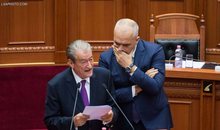

Analysis: Why is EU-Ukraine trade at risk of becoming less free?
2025-05-02 20:54:39


Refused asylum in Italy, 15 migrants sent to Gjadri camp
2025-05-02 20:30:04
Edi Rama's return to the (losing) 2011 campaign
2025-05-02 20:22:18
Moments of panic in Stuttgart/ Car "runs" into crowd of citizens
2025-05-02 20:02:06


Berisha: Rama travels twice as much as the US president
2025-05-02 19:00:58

Phoebe Gates accidentally reveals that Bill Gates has Asperger's syndrome
2025-05-02 18:45:02

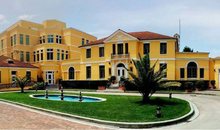
US against "birth tourism": Parents who abuse tourist visas risk entry ban
2025-05-02 18:09:59

Elona Lalaj appointed General Director of Tirana Municipal Police
2025-05-02 17:33:39



Nallbati challenges SP opponents to a public debate in the center of Devoll
2025-05-02 16:53:26
The US withdraws from peace negotiations between Ukraine and Russia.
2025-05-02 16:42:13
Zodiac signs that always know when you're lying to them
2025-05-02 16:27:17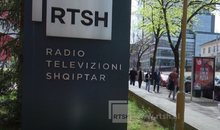


Trump makes changes to his inner circle
2025-05-02 15:56:38
Fire in an apartment on "Tish Daija" street in Tirana
2025-05-02 15:41:27
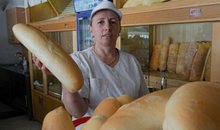
Who can stop the price increase?
2025-05-02 15:08:52


Trump makes changes to his inner circle
2025-05-02 14:34:04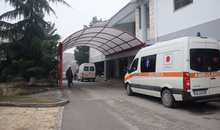
Theft at Korça hospital, nurse and patient robbed
2025-05-02 14:33:14
Hotolisht residents warn Rama-Balluk: Either us or you
2025-05-02 14:21:58
May 11th Elections, US Embassy in Tirana distributes JD Vance's message
2025-05-02 14:07:14
Germany declares AfD party an extremist group
2025-05-02 13:59:52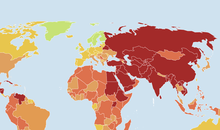

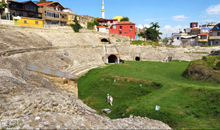

Begaj hosts King Abdullah II of Jordan with a state ceremony
2025-05-02 13:10:20

Italian MP: Vote for a great man like Berisha to change your destiny
2025-05-02 12:53:19
Florenc Çapja extradited from Dubai today
2025-05-02 12:39:21
Berisha: Every village will have the infrastructure of city neighborhoods
2025-05-02 12:30:53


For a month in Albania, the tourist couple appeared happy on social networks.
2025-05-02 12:04:09
Bozdo meeting with farmers in Dimal: DP commits to real support for agriculture
2025-05-02 11:53:43
Diaspora for a Free Albania reports Belinda Balluku to SPAK
2025-05-02 11:41:15
British Lord Supports DP in Elections: It's Time for Change in Albania
2025-05-02 11:32:48

Anti-drug operation in Belgium, Italian-Albanian gang destroyed
2025-05-02 11:10:36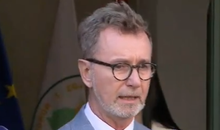
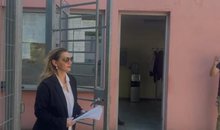
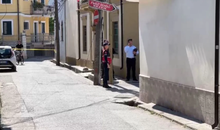
Murder in Shkodra, tourist stabs wife to death, shoots himself
2025-05-02 10:33:08
Compulsory insurance: Risk premiums between companies vary by up to 82%
2025-05-02 10:21:22
The DP electoral office in Cërrik is robbed
2025-05-02 10:11:07

Under investigation in Erion Veliaj's file, Ajola Xoxa appears before SPAK
2025-05-02 09:49:42
Hostage-taking and extortion, two young men extradited from Germany and Italy
2025-05-02 09:42:58
Reporters Without Borders: Deterioration of media freedom in Kosovo
2025-05-02 09:29:40
The DP headquarters in Cërrik was robbed during the night
2025-05-02 09:12:45

Olive oil remains in stock again, exports drop 75% for the period January-March
2025-05-02 08:49:08
Foreign exchange, the rate at which foreign currencies are sold and bought
2025-05-02 08:41:51
Early signs of dementia in young people in their thirties that are often ignored
2025-05-02 08:37:46

Horoscope, what do the stars have in store for you today?
2025-05-02 08:17:26
High temperatures, thermometer marks 31 degrees Celsius
2025-05-02 08:04:18
Posta e mëngjesit/ Me 2 rreshta: Çfarë pati rëndësi dje në Shqipëri
2025-05-02 07:49:13

DP candidate: Patronage agents follow us in cars during electoral meetings
2025-05-01 22:40:28



Forza Italia MP: Only Sali Berisha as Prime Minister can lead Albania to Europe
2025-05-01 21:29:47

For those who were scared by Tomorr Alizoti
2025-05-01 21:05:21
Berisha challenges Rama: You promised free healthcare, come here and keep it!
2025-05-01 20:56:58



The six best foods against stomach bloating
2025-05-01 20:04:09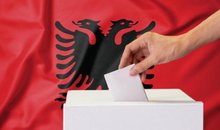


Zelensky: We want peace, Russia responds with attacks
2025-05-01 19:22:07

Berisha: The contract in the US is not just for the DP, but for every Albanian!
2025-05-01 19:08:14
Fight between teenagers, 15-year-old ends up in hospital
2025-05-01 18:44:17




